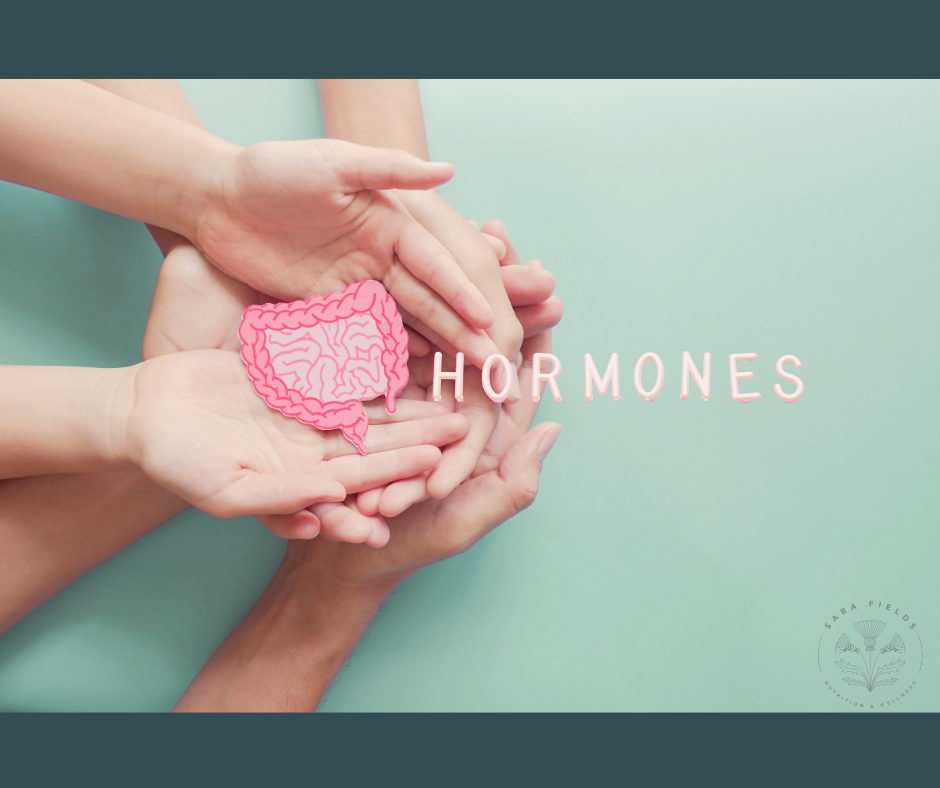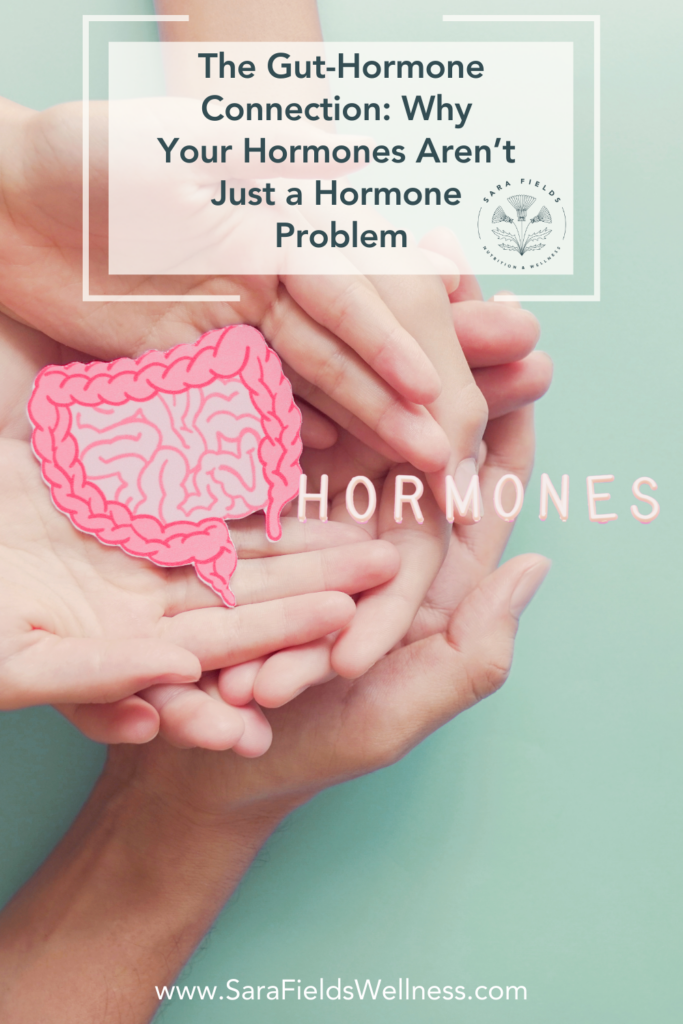
If you’ve been struggling with symptoms like hormonal acne, PMS, fatigue, mood swings, or irregular periods, it’s natural to assume your hormones are to blame and they probably are. But what most people don’t realize is that hormones rarely get out of balance on their own. As I often say, hormones are not a root cause. There’s usually something upstream causing the disruption… and the gut is one of the biggest culprits.
Yep. That bloating, constipation, or indigestion you’ve been brushing off? It could be the very thing that’s messing with your hormones.
And here’s the kicker: this applies whether you’re in your 20s dealing with breakouts and period pain, navigating PCOS or birth control recovery… or you’re in your 40s or 50s moving through perimenopause or menopause.
No matter where you are in your hormonal journey, your gut plays a foundational role.
So if you’ve ever wondered why a practitioner like me recommends gut testing when your main complaint is hormonal, here’s your answer.
3 Key Ways Gut Health Impacts Hormones
1. Hormone Detox Depends on Gut Function
Your liver breaks down estrogen (and other hormones), and your gut helps move them out of the body into the toilet. Yes, your poop is the primary vehicle that carries used up hormones out of your body. But if your gut isn’t working well due to sluggish digestion, low stomach acid, constipation, or dysbiosis (an imbalance of good and bad microbes)—those “spent” hormones can get reabsorbed into circulation.
This recirculation can lead to symptoms of estrogen dominance like:
- Heavy or painful periods
- Breast tenderness
- PMS mood swings
- Hormonal acne
2. The Microbiome Helps Regulate Estrogen
You have a subset of gut bacteria called the estrobolome that’s specifically involved in estrogen metabolism. When your gut is in balance, the estrobolome helps maintain healthy estrogen levels. But when there’s dysbiosis, your estrobolome can either increase or decrease estrogen activity inappropriately.
A healthy gut helps you “Goldilocks” your hormones—not too high, not too low.
3. Leaky Gut = Inflammation = Hormone Chaos
When the gut lining becomes more permeable (aka “leaky gut”), it allows inflammatory compounds to pass into the bloodstream. This chronic low-grade inflammation can:
- Disrupt communication between the brain and ovaries (aka the HPO axis)
- Interfere with ovulation
- Increase cortisol and insulin resistance
- Lead to irregular cycles, low progesterone, or worsening PCOS symptoms
So What Can You Do About It?
Start by supporting the basics of gut health:
- Eat fiber-rich, anti-inflammatory foods
- Avoid your personal food sensitivities (especially if identified via testing)
- Focus on digestion (slow down and breathe before meals, chew well, consider digestive supplements if needed)
- Manage stress (because stress wrecks both gut and hormone function)
- Prioritize healthy bowel movements (daily, complete, easy)
If symptoms persist—or if you’ve “tried everything” and still feel off—it may be time to do a deeper dive with gut testing, including a stool analysis and food sensitivity test.
The Bottom Line
Your hormones don’t operate in a vacuum. They’re deeply connected to your gut, your liver, your immune system—even your stress levels. So if you’ve been chasing hormonal balance without looking under the hood, it might be time to shift the approach.

leave a comment